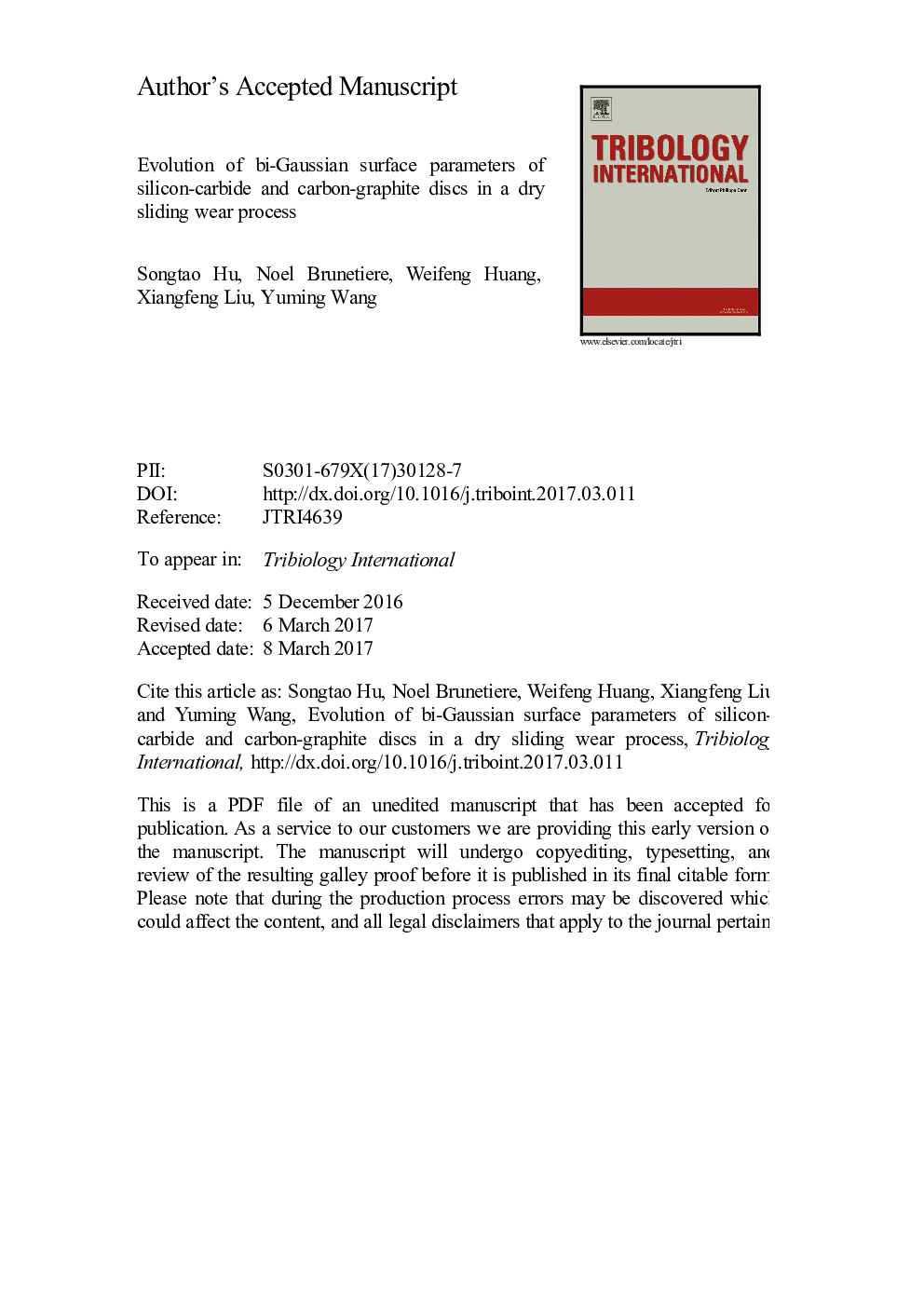| Article ID | Journal | Published Year | Pages | File Type |
|---|---|---|---|---|
| 4985960 | Tribology International | 2017 | 18 Pages |
Abstract
A surface-surface dry sliding wear of silicon-carbide and carbon-graphite discs is performed on a rotational tribological tester. Coefficient of friction (COF) is monitored as a function of time. Samples are measured by a white light interferometer. Four uniform groups, each with two repetitions, are set to different test durations to investigate the evolution of bi-Gaussian surface parameters in a wear process. The results show that the hard sample has a smoothed upper component with time, but a slightly changed lower component due to wear-generated debris. The wear-generated debris, however, introduce deep scratches to the soft sample before its upper component being altered, yielding a sharp lower component. Furthermore, the correlation between bi-Gaussian surface parameters and COF is explored.
Related Topics
Physical Sciences and Engineering
Chemical Engineering
Colloid and Surface Chemistry
Authors
Songtao Hu, Noel Brunetiere, Weifeng Huang, Xiangfeng Liu, Yuming Wang,
